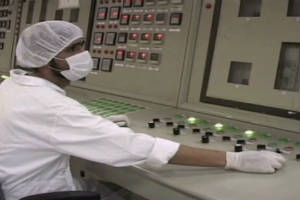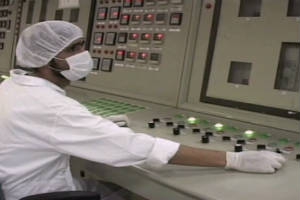(Reuters) - U.N. nuclear inspectors will press again for access to a major military facility in talks with�Iran�this week but the chances of finding any evidence of suspected atom bomb research may have dimmed because the site has been "cleaned up", Western diplomats and experts say.

Visiting the Parchin complex has become a priority for the International Atomic Energy Agency as it seeks to end what the West sees as prolonged Iranian stonewalling of its investigation into allegations of attempts to design a nuclear weapon.
Iran denies accusations that it wants to develop nuclear weapon technology. But its refusal to limit and be more transparent about its nuclear activity has led to increasingly tough sanctions and sparked renewed speculation that Israel, Tehran's arch-enemy, might bomb Iranian nuclear installations.
Citing satellite images, Western diplomats say Iran has demolished some small buildings and moved earth at Parchin in an apparent attempt to purge any incriminating evidence from a site where the IAEA believe tests in a steel chamber relevant to nuclear arms were carried out, possibly a decade ago.
"I have heard that there is currently a lot of clean-up going on at Parchin," one envoy said, who like other diplomats said such work was only spotted after the IAEA mentioned Parchin in a detailed report late last year.
Another diplomat accredited to the IAEA said he believed Iran would not allow access to the facility "unless they are extremely confident that there will be nothing found".
Iran says Parchin, about 30 km (20 miles) southeast of the capital Tehran, is a conventional military site and has dismissed allegations aired about it as "ridiculous".
But the IAEA is likely to express deepening concern about suspected whitewashing efforts at Parchin in its upcoming quarterly report on Iran's nuclear program, due next week, and how they may hamper its inquiry, the diplomats say.
A U.S. think-tank, the Institute for Science and International Security (ISIS), said this month that satellite imagery from Parchin showed "what appears to be the final result of considerable sanitization and earth-displacement activity".
URANIUM PARTICLES?
Talks between senior IAEA and Iranian officials scheduled for Friday in Vienna could offer a last-minute chance for Tehran to influence the content of the report if it were to offer concessions regarding access to sites, documents and officials.
The IAEA report - expected to reiterate that Tehran is pressing ahead with its uranium enrichment program - will be submitted to the agency's 35-nation governing board, which meets on September 10-14 with Iran likely to again dominate the agenda.
This week's meeting between the IAEA and Iran will be their first since talks in early June ended in failure, with Iran setting conditions for how the inquiry should be conducted that were unacceptable for the U.N. watchdog.
The IAEA said the two sides would hold "further discussions on a structured approach to resolve outstanding issues relating to Iran's nuclear program," referring to suspicions of possible military dimensions to Tehran's atomic activities.
No details were given. But the IAEA made clear in earlier rounds of talks this year that its immediate request is to go to Parchin. Iran says it must first agree a framework for the IAEA's inquiry before possibly allowing access to the facility - a stance dismissed by Western diplomats as delaying tactics.
It is unclear whether Iran will give any ground over Parchin at Friday's meeting at its diplomatic mission in Vienna.
Even if it did allow U.N. inspectors to visit, they would probably uncover no hard evidence of nuclear weapons-related work, according to nuclear proliferation expert Mark Fitzpatrick at the International Institute for Strategic Studies think-tank.
"The clean-up probably could not totally remove uranium particles, but they wouldn't be enriched and Iran would be able to offer exculpatory explanations," Fitzpatrick told Reuters.
�The Iran Project is not responsible for the content of quoted articles.











